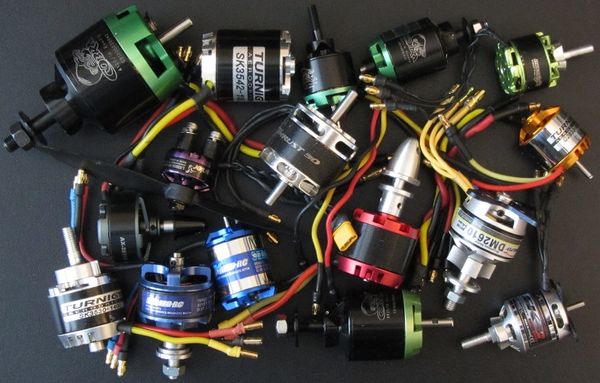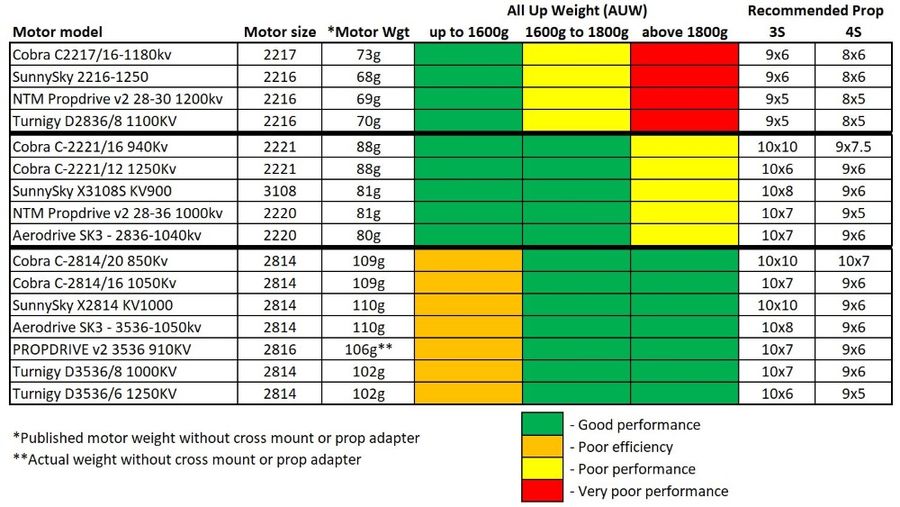Difference between revisions of "X-UAV Mini Talon Motor Selection"
(→ESC Size) |
(→See Also) |
||
| (3 intermediate revisions by the same user not shown) | |||
| Line 1: | Line 1: | ||
| − | <i><small> | + | [[File:cc_image.png|20px]]<i><small> Mark Qvale - August, 2018</small></i><br> |
<br> | <br> | ||
{| class="FCK__ShowTableBorders" cellspacing="1" cellpadding="1" width="95%" border="0" | {| class="FCK__ShowTableBorders" cellspacing="1" cellpadding="1" width="95%" border="0" | ||
| Line 43: | Line 43: | ||
== See Also == | == See Also == | ||
| + | : | ||
:*[[X-UAV Mini Talon Build Number 1]] | :*[[X-UAV Mini Talon Build Number 1]] | ||
:*[[X-UAV Mini Talon Build Number 2]] | :*[[X-UAV Mini Talon Build Number 2]] | ||
:*[[X-UAV Mini Talon Build Number 3]] | :*[[X-UAV Mini Talon Build Number 3]] | ||
:*[[X-UAV Mini Talon Build Number 4]] | :*[[X-UAV Mini Talon Build Number 4]] | ||
| − | |||
| − | |||
| − | |||
| − | |||
| − | |||
Latest revision as of 15:00, 6 January 2023

|
Introduction
The most common question I see on the thread and FB is "What motor and prop is good for the Mini Talon?". Of Course there is no one simple answer to this as with a plane used for FPV the all up weight and other features can change drastically depending on the build. With that in mind, I have created this article which gives a little more information on selection and should serve to eliminate most of the searching and question asking that goes on now.
Motor Selection Chart
I put this chart together to help outline some of the choices on some of the more popular motors. I have used color codes to help define where the indicated motor works best with respect to AUW and I have included motor "size" which is the measure of the motor stator to use as a direct size comparison. There is also a prop selection piece which is a starting point only.

|
Prop Sizes
The prop sizes shown above are based on published charts and my own test experiences. They show pitch numbers that represent the top of the pitch range for safe running of the indicated motor. I did not include folder sizes or any other prop brand as, again, this is just a starting point. All sizes are based on APC Thin Electric props (APC-E, NOT slow-fly props) and it is imperative you measure the current any prop you select pulls at wide open throttle to make sure you are not over propping and risking an ESC or motor smoke show.
ESC Size
ESC size is a critical part of any electric power system. There are many "rules of thumb" out there but you must be careful as most of them are for sizing an ESC for sport flying, not FPV flying. In a nutshell, FPV ESC's deal with more heat because the plane flys at relatively slow speeds for long periods which increases waste current in the ESC and lower airflow through the fuselage.
To mitigate the heat build up, two things can be done:
- 1. Oversize the ESC. If your motor and prop pull a max of 30A then add 20A and consider using an ESC of at least 50A
- - The larger size means more robust components which will deal with the extra waste heat at low cruising throttle levels
- 2. Use an ESC with the component circuitry to allow active freewheeling which is designed to deal with the waste current seen in a conventional ESC.
- - HobbyWing V5 series ESC are a full featured unit with a robust SBEC (8A)
- - Many of the new BLHeli ESC's also have active freewheeling and should work very well
Remember - Test, Test, Test!
See Also